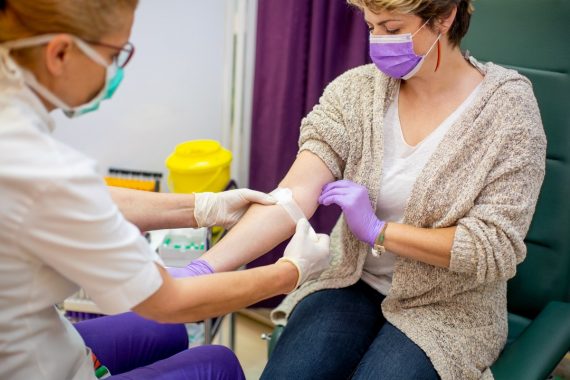BMA warns GPs taking collective action not to plug service gaps

The BMA has warned GP practices against plugging gaps in local services which have arisen as a result of collective action.
The union’s GP Committee for England has issued additional guidance for LMCs and practices, in light of collective action which began earlier this month, after taking legal advice.
It said that although legally only the BMA, as the trade union, can call for and organise industrial action among GPs, there is a ‘permissible role of LMCs’ that includes canvassing opinion, hosting events and expressing support for actions promoted by the BMA.
Although GPCE stressed LMCs ‘should not encourage GP colleagues to breach the contracts they hold’, it said that for practices to serve notice on locally commissioned services or refuse to sign new ones ‘felt to be inadequately funded’ was ‘uncontroversially not a breach of contract’.
Where this is done ‘GPs should make decisions that do not result in the unplanned disruption of patient care’ and should give responsible commissioners ‘an opportunity to make alternative arrangements for patient care if services are not to be provided by GPs’, the new guidance said.
‘GPC England suggests that for direct patient-care, a notice period of three months, analogous to that used within most locally commissioned service contracts, is given,’ the letter said.
‘We advise that a shorter notice period for non-direct care services may be given, as alternative arrangements are not required in terms of patient care. This will depend on local arrangements.’
However, it stressed that ‘if practices are undertaking work that is or has previously been delivered under a locally commissioned service, which has been withdrawn’ then GPCE encourages LMCs and practices to make it clear to ICBs that they are not ‘essential services’.
The advice, signed by GPC deputy chair Dr Julius Parker and seen by Pulse, said: ‘Do not agree to provide such services – and, if they are being provided, making it clear this is “under protest”, or on a temporary basis in order not to disrupt patient care while commissioners are given an opportunity to make alternative commissioning arrangements.
‘The longer such services are provided by local GPs without challenge, the less easy it may be to make the argument that these are not essential services, and instead they may be interpreted as having in fact been implicitly agreed as appropriate for GPs to undertake.
‘This means a longer period of negotiation may be necessary in order to make the case these are not essential services and to withdraw from delivering them.’
After the BMA announced the results of its non-statutory ballot, which saw 98.3% of GP partners voting in favour of taking collective action from 1 August, NHS England said that ICBs should make sure that practices are continuing to meet contractual requirements during the action.
Last week, Pulse exclusively revealed that almost half of England’s GP practices are already taking some form of collective action, with the most popular option being limiting the number of daily patient contacts.
The survey also revealed that half of respondents would be willing to escalate the level of collective action, including breaching contracts – although this would require a statutory ballot by the BMA.
Pulse has analysed the full set of data on collective action to see what it tells us about the current climate and what could happen next, and answered the most common questions about the action.
How LMCs are allowed to support practices taking collective action
- Organise and host events for GPs to enable BMA representatives to explain to what collective action involves;
- Canvas opinion among GPs about collective action, and ‘facilitate discussions’ about it;
- Express support for the actions being promoted by the BMA;
- The above applies to various platforms including face-to-face meetings, written communications and social media.
Source: BMA
Related Articles
READERS' COMMENTS [2]
Please note, only GPs are permitted to add comments to articles










Has anyone noticed yet?
I hear that some LMCs have started pushing back in inappropriate hospital-initiated workload (‘dumping’’). Interpreting the BMA action point saying:
‘Serve notice on any voluntary services currently undertaken that plug local commissioning gaps and stop supporting the system at the expense of your business and staff”. Of ALL the BMA action, this one has an immediate benefit to front line GPs. The increase in inappropriate delegation is racking a point where GP are spending a significant time being the consultant’s ’clinical administrator’ AND taking unacceptable legal liabilities. E.g chasing hospital initiated investigations